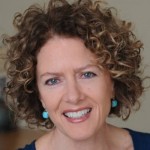What’s Your Mindset? Learner or Non-Learner?

by Libby Graves
When you find yourself in a situation where the going gets tough, what are your instincts? Give up? Point blame? Or do you persevere? Does your curiosity allow you to let go of self-judgment or what others might think? How do you motivate yourself to step into a stretch zone, where there’s more risk and maybe more adventure? Are you a Learner or a Non-Learner?
I recently had the pleasure of meeting Carol Dweck, one of the leading researchers in the field of motivation and learning, now at Stanford University. She came to speak at my daughter’s school about her book Mindset, which I keep handy and refer to often.
Dweck’s message is that your mindset can have a huge impact on maximizing your potential to achieve success – whether it’s in business, as a leader, being a parent, in school, even in your personal and professional relationships.
Dweck talks about the difference between a Growth Mindset and a Fixed Mindset. Think Learner v. Non-Learner. The Fixed Mindset may be someone who is highly intelligent or extremely talented in a sport or the arts, for example. Success comes easily, without much effort. At least at first. At some point, though, in order to achieve the next level of success, it will require more effort, more time in practice or study.
On the other hand, a Growth Mindset seeks a challenge because they love to learn. A Fixed Mindset fears challenge and views effort as a sign of weakness; instead they seek validation of their natural talent.
You could say that the Growth Mindset is the consummate Learner always pushing out of their comfort zone. They relish feedback. They’re not filled with limiting thoughts, or the belief that others’ opinions define them. They capitalize on their mistakes and “fail forward.” They’re optimistic. They’re confident, not arrogant, and love to help others grow.
The Growth Mindset believes that our basic qualities can be cultivated through our efforts, that a person’s true potential is unknown.
I learn a lot from my clients. For example, a client in a senior leadership position recently shared how much she’d grown over the years. “I used to have to be right all the time. Now I realize that there’s so much more to learn and it makes me feel more alive!” She now goes about successfully managing difficult relationships in a stressful work environment, by being fully open to information and differing opinions that allow enhanced decision-making. This is crucial to being an effective leader and more importantly, it engenders teamwork and productivity!
Note to leaders: Read any book on stellar leadership and you’ll recognize the Growth Mindset. Dweck tells the exemplary stories of Anny Mulcahy at Xerox, Lou Gerstner at IBM, and Jack Welsh at GE. What they had in common were a belief in human potential and development – for themselves and their employees, inclusive, open communication, toughness, know-how to profit from mistakes, and an overwhelming gratitude toward their employees to whom they attribute their success.
We all live in both mindsets, depending on the situation. The key is the self-awareness it takes to recognize when you’re stuck in a Fixed Mindset. And the character it takes to shift your thinking and behavior to approach the situation with a Growth Mindset. It gives you a certain freedom to take the blinders off, be open to connecting, and sharing, and maybe being vulnerable.
With self-awareness, I can then adapt my thinking and behavior to a Growth Mindset. I love learning and know it fuels my energy, so why not live as a Learner! In our business and personal lives, it means being optimistic, open-minded, inclusive, trusting, determined and accepting, and sets us up for success.
About Libby Graves
 I asked Libby Graves to be a guest leader as I greatly admire her focus on serving her clients. She is not about herself; rather, she is about what she can do for others. Libby is a model of servant leadership.
I asked Libby Graves to be a guest leader as I greatly admire her focus on serving her clients. She is not about herself; rather, she is about what she can do for others. Libby is a model of servant leadership.
Libby is a professional business coach, committed to supporting executives to maximize their contribution to their organizations. Her background includes an MBA from Wharton and high-level leadership positions with large companies doing business around the world.
After her own success in the business world, she wanted a change, to focus on helping others, and she received her executive coaching certification and founded EAG Associates.
